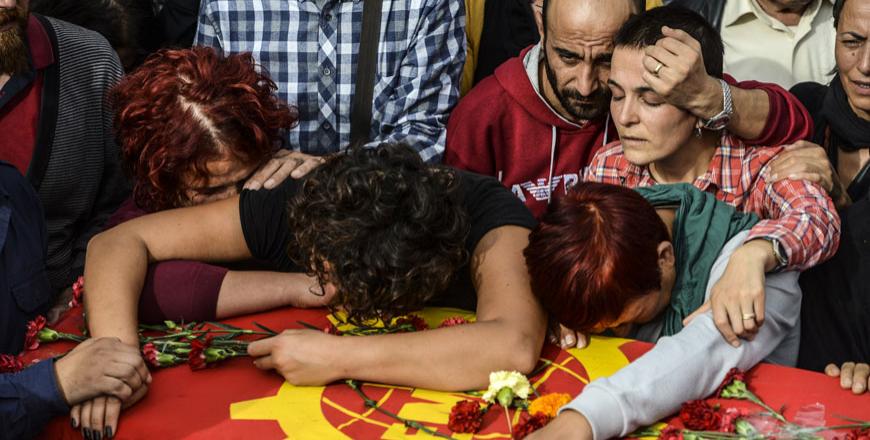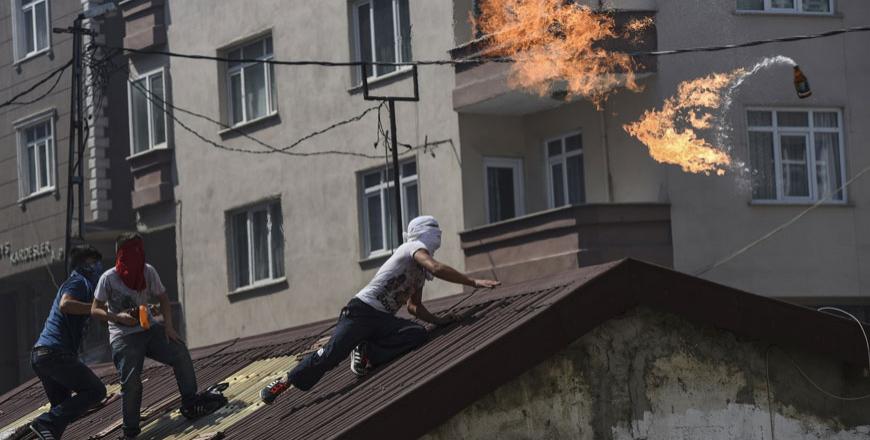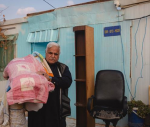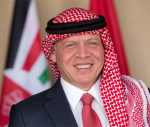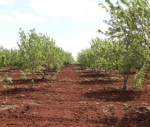You are here
Turkey attacks Daesh targets in Syria, Iraq in response to Istanbul bombing
By Reuters - Jan 15,2016 - Last updated at Jan 15,2016
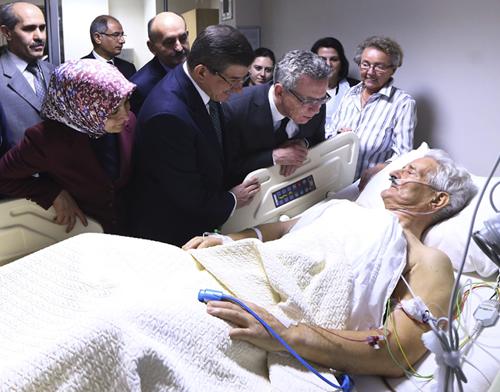
Turkey’s Prime Minister Ahmet Davutoglu (centre), accompanied by his wife Sare (left), and German Interior Minister Thomas de Maiziere (2nd right) visit a victim of Tuesday’s explosion in the historic Sultanahmet district of Istanbul, at a hospital in Istanbul, on Wednesday (AP photo)
ANKARA — Turkish tanks and artillery have bombarded Daesh positions in Syria and Iraq over the past 48 hours, killing almost 200 of its fighters in retaliation for a suicide bombing in Istanbul, Prime Minister Ahmet Davutoglu said on Thursday.
A Daesh suicide bomber, who entered Turkey as a Syrian refugee, blew himself up among groups of tourists in the historic centre of Istanbul on Tuesday, killing 10 Germans and seriously wounding several other foreigners.
Turkey, a NATO member and part of the US-led coalition against Daesh, would also carry out air strikes against the radical Sunni militants if necessary and would not yield until they were flushed from its borders, Davutoglu said.
“After the incident on Tuesday close to 500 artillery and tank shells were fired on Daesh positions in Syria and Iraq,” he told a conference of Turkish ambassadors in the capital Ankara, using an Arabic name for Daesh.
“Close to 200 Daesh members including so-called regional leaders were neutralised in the last 48 hours. After this, every threat directed at Turkey will be punished in kind.”
Davutoglu said the Turkish strikes had targeted Daesh positions around Bashiqa in northern Iraq, where Ankara recently deployed a force protection unit to defend Turkish soldiers who are training an Iraqi militia in the fight against the Sunni radicals.
Cross-border strikes into Syria targeted an area around the rebel-held town of Marea, 20km from the Turkish border and near the edge of a “safe zone” Turkey wants to establish in northern Syria to keep Daesh at bay.
“Our ground strikes on these positions are continuing and if necessary our air force will come into play,” Davutoglu told the conference.
Interior Minister Efkan Ala said earlier seven people had been detained in connection with the Istanbul bombing. Turkey has rounded up hundreds of suspected Daesh members in its efforts to crack down on the group’s domestic networks.
Russia’s foreign ministry said one of three Russian men among those arrested after the Istanbul bombing was suspected of having links to Daesh and that such extremists “feel comfortable” in Turkey. It named him as Aidar Suleimanov, born in 1984.
Russian news agencies said he was suspected of helping send new recruits from Russia to the militant group. It was not clear if he was thought to have been directly involved in the Istanbul bombing.
War on two fronts
Turkey was long a reluctant partner in the US-led coalition fighting Daesh, refusing a frontline military role and arguing that only the ouster of President Bashar Assad — not just bombing the jihadists — could bring peace in Syria, an argument it maintains.
But it has faced a series of deadly attacks by the radical Sunni militant group over the past six months, including a suicide bombing in the border town of Suruc last July and a double bombing in Ankara in October which killed 100 people, the worst attack of its kind on Turkish soil.
Ankara launched what it called a “synchronised war on terror” in July which has mostly involved air strikes and a ground campaign against Kurdistan Workers Party (PKK) militants in its southeast, but also included allowing its Incirlik Air Base to be used by coalition countries to bomb Daesh.
Its armed forces have been stretched as they fight on two fronts, with the violence in the largely Kurdish southeast, where the PKK has fought a three-decade insurgency for greater Kurdish autonomy, at its worst since the 1990s.
Kurdish militants attacked a police station in the southeast with a truck bomb overnight, killing six people including a baby and two toddlers in one of the biggest strikes since a two-year ceasefire collapsed in July, security officials said.
Although Turkey initially carried out a limited number of air strikes against Daesh in Syria as part of the US-led effort, its warplanes have not flown in Syrian
airspace since Turkey shot down a Russian fighter jet in late November, triggering a diplomatic row with Moscow.
Davutoglu on Wednesday again accused Russia of protecting Daesh in Syria by bombing opposition forces fighting the group rather than Daesh itself and said Russia’s entry into the Syrian war was obstructing Turkish air strikes.
“They should either destroy Daesh themselves or allow us to do it,” he told a news conference on Wednesday.
Related Articles
ANKARA — Turkish warplanes struck against Kurdish militant camps in northern Iraq on Monday, a day after 37 people were killed in an Ankara
ANKARA — Turkey is targeting Daesh in investigations of a double suicide bombing in Ankara that killed up to 128 people, officials said on S
ISTANBUL — The Turkish army on Sunday blamed PKK militants for a deadly car bomb attack that killed two of its soldiers in the Kurdish-domin


